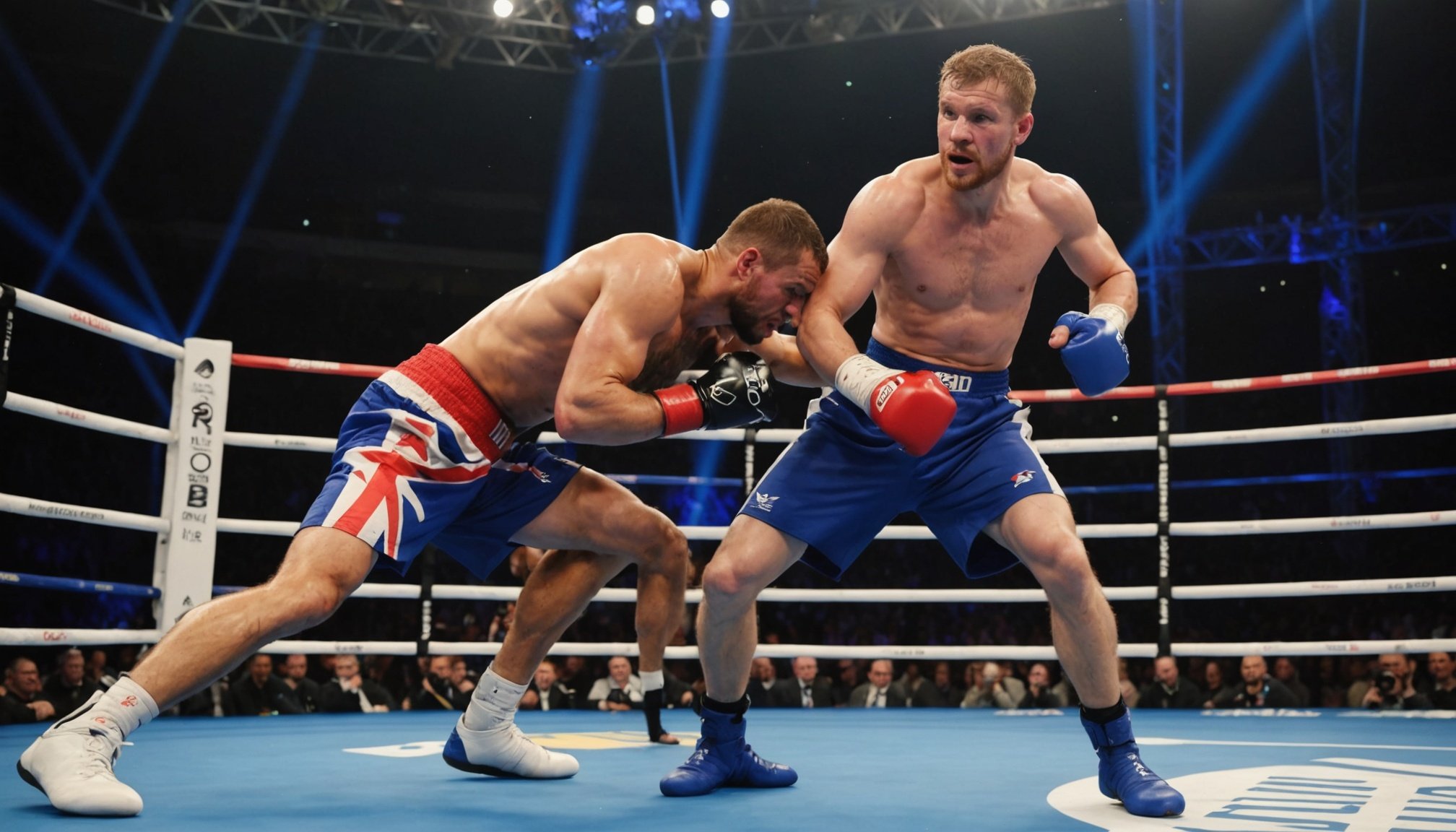Exploring Brexit’s Ripple Effects on the UK’s Combat Sports Scene: What You Need to Know to Brexit and Its Impact
Brexit, the United Kingdom’s departure from the European Union, has been a pivotal event in recent history, affecting various sectors of the UK economy and society. One area that may seem less obvious but is nonetheless significant is the combat sports scene. From boxing and mixed martial arts (MMA) to wrestling and other disciplines, Brexit has introduced a range of challenges and opportunities that are shaping the future of these sports in the UK.
Economic Implications for Combat Sports
The economic impact of Brexit on combat sports is multifaceted. Here are some key points to consider:
Have you seen this : Identifying Key Concussion Symptoms in UK Martial Arts Fighters: A Comprehensive Guide
Funding and Sponsorship
- Reduced EU Funding: Prior to Brexit, various EU programs provided funding for sports development, including combat sports. The loss of these funds has forced many organizations to seek alternative sources of funding, which can be challenging in an economic climate already strained by Brexit uncertainties.
- Sponsorship Challenges: The economic instability post-Brexit has made it harder for combat sports organizations to secure sponsorships. Many sponsors are cautious about committing funds in a volatile economic environment.
Talent Acquisition and Retention
- Work Visa Requirements: Post-Brexit, EU nationals need to apply for work visas to compete or work in the UK. This has created a barrier for European fighters and coaches who were previously able to move freely. For instance, a skilled MMA fighter from Poland now needs to meet specific salary thresholds and apply for a skilled worker visa, which can be a deterrent.
- Brain Drain: The UK has historically attracted top talent from across Europe. However, with the new visa requirements, many young and talented fighters are opting to pursue their careers in other EU countries where they can move more freely.
Global Competitiveness and Free Trade
Brexit has also affected the global competitiveness of the UK’s combat sports scene.
International Competitions
- Travel and Logistics: The new travel restrictions and requirements have made it more complicated for UK fighters to participate in international competitions. This can lead to missed opportunities and a reduced global presence for UK combat sports athletes.
- Free Trade Agreements: While the UK is negotiating new free trade agreements, the absence of a comprehensive deal with the EU has disrupted the smooth flow of goods and services, including those related to combat sports equipment and events.
Case Study: Boxing
- Boxing Promotions: Promoters like Eddie Hearn have expressed concerns about the impact of Brexit on boxing events. The complexity of arranging fights involving EU fighters has increased, affecting the frequency and quality of matches.
- Fighter Mobility: Top boxers from the EU, such as Poland’s Artur Szpilka, face more hurdles when considering fights in the UK. This can lead to a reduction in the number of high-profile fights and a decrease in the overall quality of the sport.
Human Rights and Social Implications
Brexit has also had social and human rights implications for the combat sports community.
In the same genre : Top Strategies for Safeguarding Against Skin Infections in UK Martial Arts Gyms
Diversity and Inclusion
- Loss of European Talent: The restrictions on EU nationals have reduced the diversity of the UK’s combat sports scene. This loss of talent not only affects the competitive level but also the cultural richness that international fighters bring.
- Community Impact: Local gyms and clubs that once thrived with a mix of UK and EU fighters are now struggling to maintain their membership and competitive edge.
Media and Public Perception
- Media Coverage: The media landscape has changed, with Brexit dominating headlines and often overshadowing sports news. This reduced media coverage can affect the visibility and popularity of combat sports.
- Social Media: Social media platforms, while helpful in promoting combat sports, are also filled with Brexit-related discourse. This can make it challenging for combat sports to gain the attention they deserve in a crowded online space.
Future Prospects and Opportunities
Despite the challenges, there are opportunities and future prospects for the UK’s combat sports scene.
New Trade Agreements
- Emerging Markets: The UK’s ability to negotiate new trade agreements with countries outside the EU could open up new markets for combat sports. For example, a trade deal with the United States could facilitate more fights and collaborations between UK and US fighters.
- Start-Ups and Innovation: The economic disruption caused by Brexit could spur innovation and the emergence of new start-ups in the combat sports sector. Companies focusing on sports technology, training equipment, and digital platforms could thrive in this new environment.
Youth Development
- Youth Mobility Schemes: Although current youth mobility schemes have been rejected, there is ongoing discussion about reintroducing such programs. This could allow young fighters from the UK to train and compete in EU countries, and vice versa, fostering talent development and cultural exchange.
- Domestic Talent: The focus on developing domestic talent could lead to a stronger, more resilient UK combat sports scene. Initiatives to support young fighters, such as scholarships and training programs, could become more prominent.
Practical Insights and Actionable Advice
For those involved in the UK’s combat sports scene, here are some practical insights and actionable advice:
Diversify Funding Sources
- Seek Alternative Funding: Organizations should explore alternative funding sources, such as local government grants, private sponsorships, and crowdfunding.
- Build Strong Partnerships: Building strong partnerships with local businesses and community groups can help secure funding and support.
Adapt to New Visa Requirements
- Understand Visa Processes: Ensure that fighters, coaches, and staff understand the new visa requirements and processes to avoid delays and complications.
- Plan Ahead: Plan fights and events well in advance to account for the time needed to secure necessary visas.
Leverage Technology
- Digital Platforms: Utilize digital platforms to promote events, engage with fans, and provide training content. This can help maintain visibility and attract new audiences.
- Sports Technology: Invest in sports technology to improve training methods, enhance performance, and attract new talent.
Brexit has introduced significant changes to the UK’s combat sports scene, from economic and logistical challenges to social and human rights implications. However, within these challenges lie opportunities for innovation, growth, and development.
Quotes from Key Figures
- Kemi Badenoch: “One of the reasons [Brexit] has not been as successful as it should have been is because we didn’t start with a plan.” This lack of planning has been particularly evident in the sports sector, where the absence of a clear strategy has exacerbated the challenges faced by combat sports organizations.
- Boris Johnson: “I still believe in Brexit,” Johnson said, emphasizing the potential for the UK to do things “better.” For combat sports, this means finding new ways to thrive in a post-Brexit world, leveraging new trade agreements and technological innovations to stay competitive.
Table: Comparison of Pre-Brexit and Post-Brexit Scenarios
| Aspect | Pre-Brexit | Post-Brexit |
|---|---|---|
| Talent Mobility | Free movement of EU and UK fighters | Work visas required for EU fighters |
| Funding | EU funding programs available | Reduced EU funding, need for alternative sources |
| International Competitions | Easy travel and participation | Complex travel and visa requirements |
| Sponsorship | Easier to secure sponsorships | More challenging due to economic uncertainty |
| Media Coverage | More media attention | Reduced media coverage due to Brexit dominance |
| Youth Development | Youth mobility schemes available | Limited youth mobility schemes |
| Trade Agreements | Part of EU trade agreements | New trade agreements being negotiated |
Detailed Bullet Point List: Strategies for Combat Sports Organizations
-
Diversify Funding Sources:
-
Apply for local government grants
-
Seek private sponsorships
-
Use crowdfunding platforms
-
Build partnerships with local businesses and community groups
-
Adapt to New Visa Requirements:
-
Understand the new visa processes
-
Plan fights and events well in advance
-
Ensure all fighters, coaches, and staff are aware of the requirements
-
Leverage Technology:
-
Use digital platforms for promotion and engagement
-
Invest in sports technology for training and performance enhancement
-
Provide online training content to attract new talent
-
Focus on Domestic Talent:
-
Develop initiatives to support young fighters
-
Offer scholarships and training programs
-
Collaborate with schools and local clubs to identify and nurture talent
-
Build Strong Partnerships:
-
Partner with other sports organizations
-
Collaborate with media outlets for better coverage
-
Engage with the community to build a stronger fan base
By understanding these challenges and opportunities, and by implementing practical strategies, the UK’s combat sports scene can navigate the complexities of Brexit and emerge stronger and more resilient in the future.











